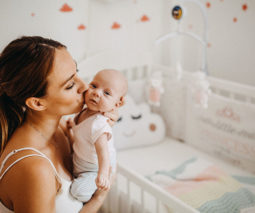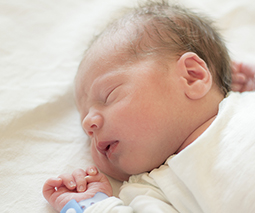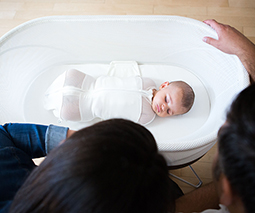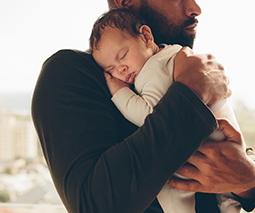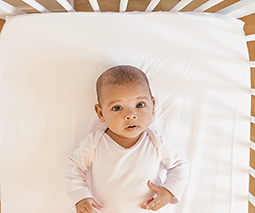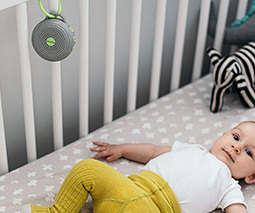The truth about early mornings after kids
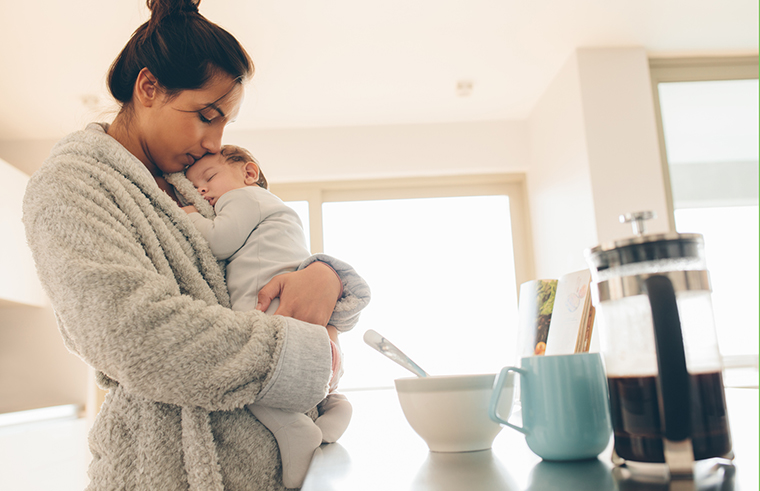
I host a weekly Helpline with Chris Minogue, a mothercraft nurse with over 30 years of experience. Parents call in with questions about all kinds of things, but it’s mostly related to sleep. Every couple of months we will get a question about a baby who will wake around 6am.
“How can I get them to sleep in until 7am?” the parent will ask.
At this point, I guffaw incredulously. Yes. I am that patronising parent you’d like to throw a jug of cold water over. But before you start piling the ice in the jug, hear me out. Allow me to drop the ‘early morning’ truth bombs I have learned over the past six years of parenting, and four years of hearing this kind of question asked.
1. There is a point when you cannot resettle a child
I don’t claim to be an expert, but it would seem from the thousands of questions we have received, and Chris has answered, that there is a point within the 24 hour cycle where children can be resettled: 3am, 4am, 5am and even 5.30am, are all reasonable times to attempt to get a baby or small child back to sleep.
But 6am, I am afraid, is wake up time. It could be that the sun is often up at 6am. It could be that it’s a reasonable time to start your day. It could be that there’s an unwritten universal law that children will not go back to sleep after 6am unless they are officially a teenager.
Who knows? The point is, 6am is the point of no return.
2. Time is relative
If you are a parent who has moaned about your baby waking up at 6am, you probably know this already. Chances are you complained to a parent who looked at you like you just whinged about someone bringing you breakfast in bed and staying to give you a foot massage.
Many, many babies and children wake at 5.30am. Others struggle to sleep consistently for years and may still be waking several times a night while your little ‘early riser’ has snoozed comfortably until popping up to say hello at 6am.
What is early to you is a marathon sleep-in for others. Maybe try and flip your perspective and see your wake-up time as they do: a miracle, pure and simple.
3. You cannot make a child sleep in
You might still be unconvinced. All families are different, you say; 6am is painful, you say. Leave me alone you annoying, smug parent. But before you try any number of grow clocks, sleep consultants or lavender oils, here is another truth bomb you cannot avoid: you cannot make a baby sleep in.
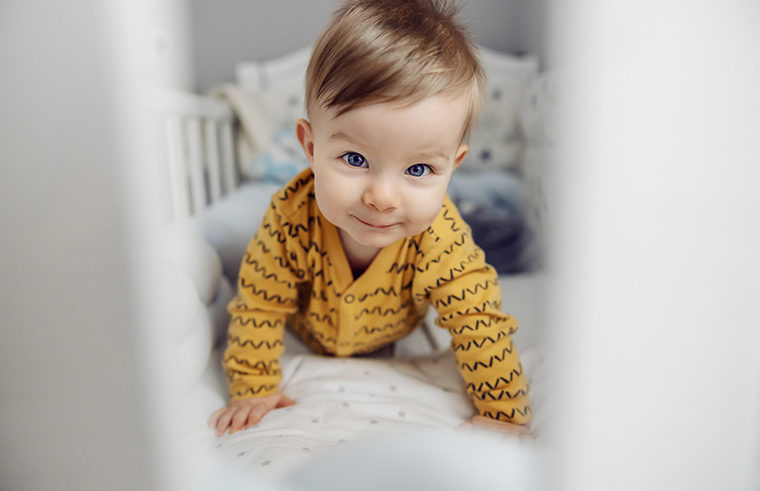
Parents of toddlers who choose to drop their day sleep will know what I’m talking about. You can sing all the lullabies you know, pin them down, play them Pink Floyd on rotation, beg, plead and bribe … it will not work (and yes, I have tried all of the above).
As at the time of writing this, there is no way to force a child to sleep.
4. It’s not all bad news
They grow up so fast. Right now, it may seem like they’ve been a baby for one hundred years because that’s how much sleep you feel like you need. But one day we’ll all be hollering at our children to get out of bed at 11am.
Lying on the floor with my babies in the pre-morning light were some of the most precious moments we had together. Yes, my eyes felt like sandpaper and my body ached for more sleep. But it was just them and me staring into each other’s eyes, cooing and pretending that no one else existed.
Now my children are older they still wake up at sparrow’s fart, but now I can tell them to watch TV (judge away, I’m impervious to it when it comes to sleep).
Seasoned parents like me will tell you that after children you will never sleep again. This is true, to a degree. It’s fair to say that sleep will never be the same again, but it won’t always be as punishing as the first year of your baby’s life.
If you can accept those early mornings as a part of the parenting gig, there are lots of upsides to your new routine.
Cuddles in the quiet, rediscovering cartoons, the unique beauty of mornings and feeling like you have more hours in the day.
It’s not always as bad as it feels.
 Need some more baby sleep advice? Our Parent School sleep experts can help. Click to find out more or book a one-on-one session.
Need some more baby sleep advice? Our Parent School sleep experts can help. Click to find out more or book a one-on-one session.
